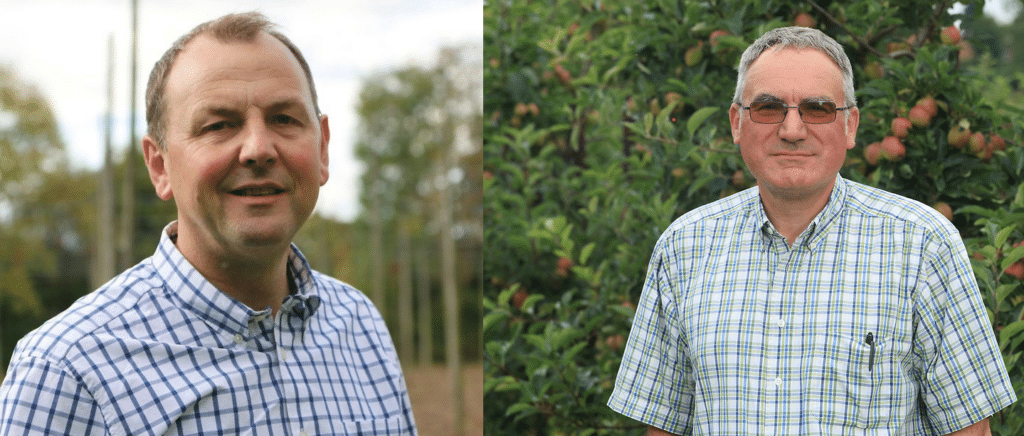BAPL-NIAB Apple and Pear Technical Day – The Fruit Grower
Joanna Wood reports ...
This year the BAPL (British Apples & Pears Ltd) research and development team joined forces with NIAB to deliver the annual Tree Fruit Day in the Mumford Building at NIAB East Malling and via Zoom. In total 110 delegates joined remotely, and all 80 seats were full at the venue, proving the value of research to top-fruit growers. With the closing of AHDB as the vehicle for collecting levies for R&D, it is a credit to the top-fruit sector that, unlike all other UK crop trade associations, they were up and running with a system to continue funding R&D without a break. This was due to the foresight and energy of BAPL Chairman Ali Capper and Rob Saunders, who was the last Chairman of the AHDB Tree Fruit Panel and is now BAPL Research and Development Technical Committee Chairman.
Welcomed by NIAB’s CEO Mario Caccamo, the delegates were treated to a packed programme, plus an opportunity to meet the sponsors of the event. The content was designed to brief apple and pear growers on the latest research projects that their subscriptions are funding. These are designed to address some of the industry’s most pressing production problems. Speakers included scientists from NIAB, ADAS and the University of Greenwich, along with growers and agronomists who shared some of their experiences in adopting new techniques in their own businesses.
Updates on, amongst others, an Innovate UK project to develop precision orchard management for the environment and how the industry is contributing towards carbon capture were also included. The Horticulture Crop Protection Ltd (HCP) team were also invited to explain how growers’ funds are being used to deliver new and alternative plant protection products for the apple and pear sector.
New approaches to pest control
Jonathan Blackman, Horticultural Technical Manager at Hutchinsons, used his presentation to evaluate commercial IPM strategies for sustainable codling moth control in apples. At present there’s only one generation of codling moth per year, but maybe not in the future. Possibly there will be more problems with this pest as we are growing more late varieties. Most growers are using IPM strategies, but there is a need to demonstrate that IPM works and give growers and agronomists greater confidence. Sadly, mating disruption is not currently available to UK growers. Codling moth granulosis virus infects the insect and begins replicating, causing larvae to stop feeding, and eventually die. A trial using three sites in West Kent showed that biocontrol using approaches like virus and nematodes was as good as a conventional approach to codling control at all three sites, but it did cost more.
